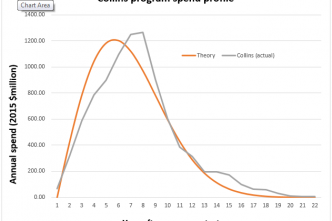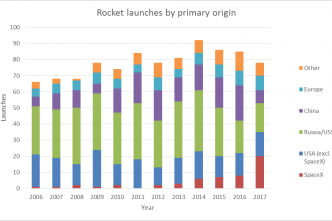The UK Parliament’s e-mail system was targeted by a sustained brute-force password-guessing attack last Friday, forcing parliamentary staff to temporarily block remote email access and mandate password changes. The ‘rudimentary’ but effective attack resulted in …
Concepts such as ‘rules’, ‘order’ and ‘peace’ are often bandied about in dialogue among Asia–Pacific countries, but the differing interpretations of those words have resulted in countries talking past each other, rather than to each …
‘Friends with both; allies with one.’ Thus the Richardson doctrine seeks to define Australia’s most appropriate relationship with the United States and China. We can be sure that Dennis Richardson, one of Australia’s great public …
Australia will either lead or play a very significant role in the campaign against Islamic State terrorists in the Southern Philippines, says David Petraeus, former coalition commander in Iraq and then in Afghanistan. Interviewed by …
Sea State Just in time for President Modi’s visit to Washington, the Trump administration has agreed to sell 22 Guardian drones to India, in a deal that’s been described as a ‘game changer’ for US–India …
While the Australian Government’s Cyber Security Strategy contains many good initiatives, the government’s narrative needs to evolve to account for inevitable failures. Current government rhetoric is decidedly inconsistent: cyber espionage is alive and well, yet …
In the previous part of my exploration of the impact of strong encryption on our security agencies, I described the unsophisticated days of intercepting telephony in the 1970s. With voice communications, it’s largely a case …
It is increasingly clear that US President Donald Trump represents a departure when it comes to America’s global outlook and behavior. As a result, the United States will no longer play the leading international role …
As US supported Syrian forces and their allies battle to retake Raqqa from ISIS, it’s important to remember what the city has become under ISIS rule. Raqqa became the capital of ISIS’s so-called caliphate and …
It was remarkable that the first foreign trip taken by newly elected French President Macron was to Mali to meet French troops undertaking an anti-insurgency/terrorism operation in the north of the country (within days, …
The man who promised to drain Washington’s swamp has water around his ankles. Alligators snap. Amid the rolling, roiling, rollicking Wars of Washington, Donald Trump needs a map of the swamp. The Donald should uncouple …
First up, this must-read longread courtesy of The National Interest chronicles how deep structural shifts are afflicting the global system to bring about an end to the post-Cold War era. The authors reflect on the …
De-risking practices initiated by Australia’s financial institutions are inadvertently threatening our national security because they perpetuate high risk unregulated banking channels which allow terrorist groups to move illicit funds without detection. This contemporary phenomenon, also …
Today I’m coming back to a subject long dear to me—the cost of the Future Submarine program. Long term followers of the subject might recall ASPI’s 2009 paper How to buy a submarine (PDF), which …
Bite by kilometer-size bite, China is eating away at India’s Himalayan borderlands. For decades, Asia’s two giants have fought a bulletless war for territory along their high-altitude border. Recently, though, China has become more assertive, …
The Beat Crimes that make you say…huh? It’s a close race for the week’s kookiest crime. In California, three individuals were arrested for grand theft, after some US$300,000 worth of avocados were pilfered. ‘We take …
The world of space has entered a new era. Over the past two months, barriers thought unbreakable just five years ago have been shattered. In the US, SpaceX re-landed first-stage boosters of its second-hand Falcon …
The sudden schism between Qatar and a Saudi Arabian-led coalition has already produced wide-ranging consequences. While Qatar continues to deny charges of supporting Islamist extremism, Turkey and Iran have intervened to ease the country’s isolation. …
North Korea’s quest for nuclear weapons is often depicted as a ‘rational’ response to its strategic imperatives of national security and regime survival. After all, the country is surrounded by larger, supposedly hostile states, and …
The encryption debate has continued to dominate cyber security news this week. German ministers discussed measures to monitor encrypted messaging by forcing ‘source telecoms’ to install monitoring software. Conversely, the European Parliament is currently considering …





















